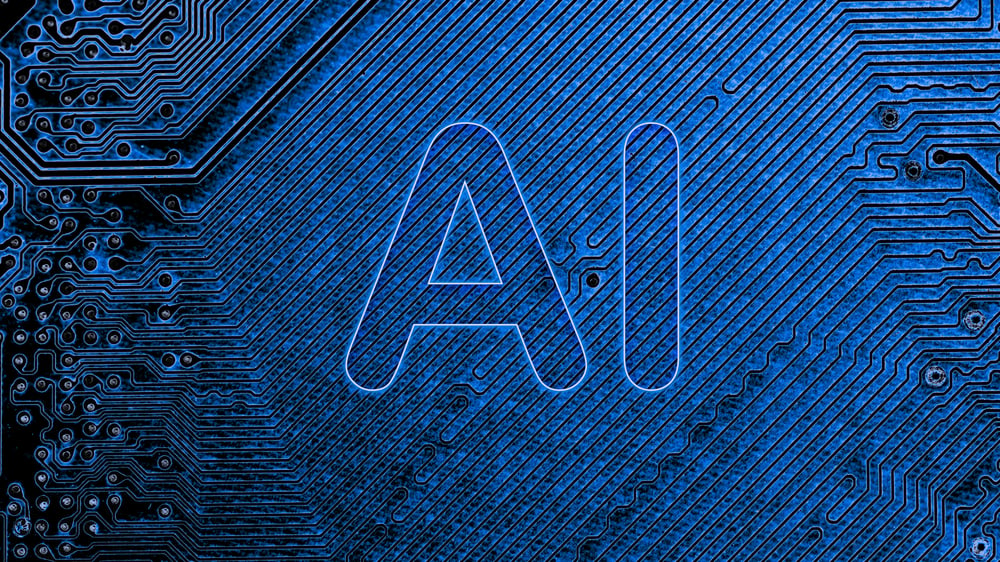Preparing for an AI-Driven Workforce: What Engineers Should Know
AI Technology May 21, 2025 9:00:00 AM Ken Pomella 4 min read

Artificial intelligence (AI) is reshaping the workforce at an unprecedented pace. As AI systems evolve from simple automation to complex decision-making capabilities, organizations across every sector are rethinking how they structure jobs, teams, and entire business processes. For engineers, especially those in the data and software fields, understanding and preparing for an AI-driven workforce is no longer optional—it’s essential.
In 2025, engineers play a critical role not only in building AI systems but also in adapting to the new dynamics of work shaped by AI. This blog explores the shifts that engineers should anticipate, the skills they'll need to succeed, and how they can stay ahead in an AI-powered workplace.
Why AI is Transforming the Workplace
AI is not simply automating routine tasks—it’s changing how decisions are made, problems are solved, and products are built. Here’s why AI-driven workplaces matter to engineers:
- Automation of repetitive tasks: AI reduces time spent on mundane or repetitive tasks, freeing engineers to focus on strategic and creative problem-solving.
- Intelligent decision support: AI offers real-time insights, recommendations, and analytics, helping engineers make faster and smarter decisions.
- Enhanced productivity: Engineers who leverage AI tools can work more efficiently, increasing innovation and output.
- Demand for new skills: As AI handles more routine engineering tasks, the focus shifts toward creativity, collaboration, and strategic thinking.
Engineers who understand and embrace these changes will position themselves as essential contributors in the evolving workforce.
Key Shifts Engineers Should Anticipate in an AI-Driven Workforce
Understanding the changes brought by AI is crucial. Here’s what engineers can expect in an AI-driven workplace:
1. Collaboration Between Humans and AI
Rather than replacing engineers, AI increasingly collaborates with them. Engineers will work alongside AI models, using their insights to enhance decision-making, improve product development, and streamline operations. This human-AI synergy will become the norm, requiring comfort with AI-driven recommendations and collaborative decision-making.
2. Shift Toward Higher-Level Problem-Solving
Routine, repetitive engineering tasks will increasingly be automated. This frees engineers to tackle complex, strategic challenges, such as systems design, creative problem-solving, and innovation—areas where human intuition and creativity add the greatest value.
3. Increased Focus on Ethical and Responsible AI
As AI decisions impact more aspects of daily life, ethical considerations become critical. Engineers must ensure that AI systems are fair, unbiased, transparent, and accountable. This means understanding regulatory frameworks, ethical AI standards, and responsible AI design practices.
4. Greater Demand for AI Literacy
AI literacy—understanding how AI works, its limitations, and its applications—will be a universal skill across engineering roles. Even engineers not directly developing AI systems will need a foundational understanding to effectively leverage AI tools and collaborate with AI specialists.
Essential Skills for Engineers in an AI-Driven Workforce
To thrive in a workplace powered by AI, engineers should focus on developing these key skills:
1. AI and Machine Learning Fundamentals
Even if your core job isn’t building ML models, knowing how AI systems function, learn, and evolve is essential. Familiarity with AI frameworks, models, and their applications across industries will help you integrate these technologies effectively.
2. Data Engineering and Analytics Skills
AI systems depend on robust data pipelines and reliable data quality. Data engineering skills—such as real-time data processing, scalable ETL, and data governance—will be increasingly important in supporting effective AI deployment and integration.
3. MLOps and AI Deployment Expertise
Understanding how AI models move from research to production environments (MLOps) is becoming critical. Skills in deploying, managing, and monitoring AI systems will be highly sought after, ensuring AI solutions are reliable, secure, and scalable.
4. Ethical AI and Governance
With growing regulatory attention on AI’s social and ethical implications, engineers must become versed in ethical AI practices. Skills in bias detection, fairness monitoring, and compliance with privacy laws (GDPR, CCPA) will become core competencies.
5. Soft Skills: Collaboration, Creativity, and Communication
As AI takes on more technical tasks, human engineers will increasingly rely on interpersonal and creative skills. Effective collaboration with AI specialists, clear communication of AI-driven insights, and innovative thinking will differentiate top engineers.
Tools Engineers Should Master for an AI-Driven Workforce
To effectively navigate this shift, engineers should become proficient in these core AI and data engineering tools:
- ML Frameworks: TensorFlow, PyTorch, Scikit-learn
- Cloud AI Platforms: AWS SageMaker, Azure ML, Google Vertex AI
- MLOps and Deployment Tools: MLflow, Kubeflow, Docker, Kubernetes
- Data Pipeline Tools: Apache Airflow, Apache Kafka, AWS Glue, dbt
- Data and AI Observability: Monte Carlo, Datadog, Prometheus
- Collaboration Tools: Notion, Slack, Jira, GitHub
How to Prepare for the AI-Driven Workplace
Here’s your action plan as an engineer to get ahead of the AI-driven workforce shift:
Build your AI literacy: Enroll in foundational AI and ML courses to understand core concepts.
- Develop practical AI skills: Experiment with real-world projects using popular frameworks like TensorFlow or PyTorch.
- Explore data engineering and MLOps: Gain hands-on experience with pipelines, cloud platforms, and MLOps tools.
- Stay current with ethical AI practices: Learn best practices for fairness, transparency, and compliance.
- Invest in soft skills: Improve your communication, creativity, and collaboration through teamwork and professional development activities.
Conclusion
The rise of AI in the workplace represents a transformative shift—one that creates opportunities as well as challenges for engineers. By anticipating these changes, developing essential AI skills, and mastering key tools, engineers can become indispensable leaders in an AI-driven world.
Preparing now will not only secure your career—it will position you to shape the future of work itself, making meaningful contributions in an era defined by intelligent systems and human creativity working side by side.

Ken Pomella
Ken Pomella is a seasoned technologist and distinguished thought leader in artificial intelligence (AI). With a rich background in software development, Ken has made significant contributions to various sectors by designing and implementing innovative solutions that address complex challenges. His journey from a hands-on developer to an entrepreneur and AI enthusiast encapsulates a deep-seated passion for technology and its potential to drive change in business.
Ready to start your data and AI mastery journey?
Explore our courses and take the first step towards becoming a data expert.
